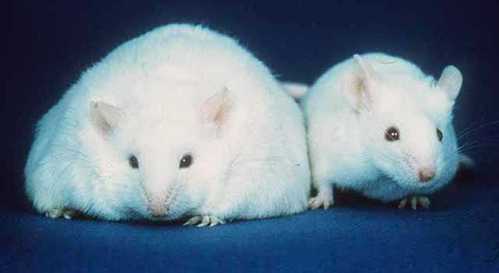
Is stuttering caused by genetics?
May 18, 2011

- Related Topics:
- Classical genetics,
- Environmental influence,
- Genetic conditions,
- Complex traits,
- Gene expression,
- Neurodiversity
A curious adult from California asks:
"Is stuttering a genetic anomaly? It certainly seems so based on the much greater prevalence of stuttering amongst boys versus girls."
The short answer is yes, stuttering is genetic. But the details can get confusing.
Around 70% of stuttering can be explained by genes.1.2 But we only know which genes in 10% of stutterers.3 And we don't know why those genetic differences would cause stuttering. Pretty complicated, right?
To explain, I'll start with the example of eye color. Your eye color actually depends on many genes. One gene controls whether or not you have brown eyes. But blue versus green versus hazel depends on others.
You need more genes to explain more variability, just like with stuttering. Every stutterer is unique. Some people repeat syllables, some lengthen syllables, some pause, some repeat words. Some stutters make it almost impossible to communicate, some can go unnoticed. Some people grow out of it, and some don't. So it's unlikely to be caused by just one gene – or even a few.
If stuttering is so hard to define, how can we even know it's genetic? How would we know which genes could cause stuttering? I'll go over how we know stuttering is genetic. Then I'll explain what we've done to find the genetic cause of stuttering.

What makes a trait genetic?
You mention that since stuttering is more common in boys than girls, it's probably genetic. But there are lots of things that are more common in boys but aren't genetic: short hair, for instance. And many genetic things happen in boys and girls at about the same rates, like brown eyes. So that's not how scientists know something is genetic.
One clue that stuttering is genetic is that it runs in families. Every genetic trait runs in families because you get half your genes from mom and half from dad.
But a bunch of other things run in families, too. My parents love playing Scrabble and so do I. But my love of Scrabble isn't genetic. I like it because I have fond memories. Since stuttering runs in families, it could be genetic, or maybe parents who stutter teach children to stutter.
The best way to see if something is genetic is to look at twins. Twins are usually raised together, so they have similar environments growing up. But fraternal twins only share half of their DNA, while identical twins share all their DNA. If stuttering comes down to DNA, then identical twins would share it more often than fraternal twins. If it comes down to how you're raised, then both sets of twins would share it at the same rates.
From those studies, stuttering looks genetic. If your fraternal twin stutters, you've got a 32% chance of stuttering, and if your identical twin stutters, you've got a 77% chance.4
So stuttering runs in families.1,2,3 And identical twins are more likely to both stutter than fraternal twins.4 Those two things tell us stuttering is at least partly genetic.

Nature and Nurture
What I just said might not make sense if you think of every genetic variant like a gene for eye color. If your identical twin has brown eyes, it's better than a 77% chance that you've got brown eyes too. Why doesn't stuttering work like that?
It turns out that most traits only work part-way, like stuttering. A trait can depend on a lot of things in addition to your DNA.
Sometimes random chance plays a role. Take the BRCA1 gene: certain variants can increase your risk for breast and ovarian cancer.5 But even with the "bad" variant, you need a random mistake to get cancer. Two people with the same BRCA1 variant are each more likely to get cancer, but one or both of them could be cancer-free.5 And even if they both get cancer, it won't be at the same time or in the same cell.5
Some traits depend on the environment. Height and weight are genetic: whole families tend to be tall or short; slim, or heavy. But your size also depends on what you eat, when you eat it, how much you exercise, and so on.
For stuttering, both chance and environment probably play a role. That's because the brain is so complex.
The brain is constantly rewiring itself in response to what you see, hear, and think. Parts of brain development seem truly random, too. That's part of where the environment comes in. But genes are obviously important too.
Many neurological traits are genetic: things like stuttering, migraine,6 multiple sclerosis.7 But few can be explained by even a handful of genes. Most are the result of tens or even hundreds of different genes.
So lots of genes all work together with environmental factors to cause one of these traits. Or not.

Show me the genes!
Okay, so your genes only control the likelihood of stuttering. But which genes make you likely to stutter? For the most part, we just don't know yet. It's incredibly difficult to figure out which genes are responsible for stuttering, because stuttering is so complex, and because there's so much human variation to consider.8
The biggest difficulty in finding the genes for stuttering is how complex stuttering itself is. Since each stutterer is different, stuttering is probably controlled by a huge number of genes.8 Each one contributes a little bit to your risk of stuttering. How many you have, and which ones, determines how likely you are to stutter. The trait is still genetic – it's still determined by genes. But those kinds of patterns are incredibly difficult to find.
Another reason has to do with the kind of genetic variation we find. Any two people probably differ at one base pair in each 1200.9 That's almost 3 million base pairs total. It's impossible to look at all of them every time.
Scientists are making some progress though. We do this by limiting what we look for, looking for easy-to-find differences. The easiest are single variants with big effects within genes.
In a study that looked at a group of Pakistani stutterers, scientists found three genes involved in stuttering. These three genes also cause rare genetic diseases called mucolipidoses.10 People with mucolipidosis have a lot of serious problems, sometimes including stuttering. But none of the stutterers had mucolipidosis.10 Maybe a small change in one of these genes, while not being enough to give you mucolipidosis, is enough to cause a stutter.
There's a lot of interesting questions to be asked about stuttering. It looks like it's controlled by many genes, and possibly by variation outside of genes, but which ones, and how? Why do some people recover while others stutter for life? Why do girls recover more often than boys? At the moment we don't have many of the answers, but we can start to ask the questions.
Read More:

Author: Elizabeth Finn
When this answer was published in 2011, Elizabeth was a Ph.D. candidate in the Department of Genetics, studying epigenetics in placental development in Julie Baker's laboratory. She wrote this answer while participating in the Stanford at The Tech program.
 Skip Navigation
Skip Navigation
